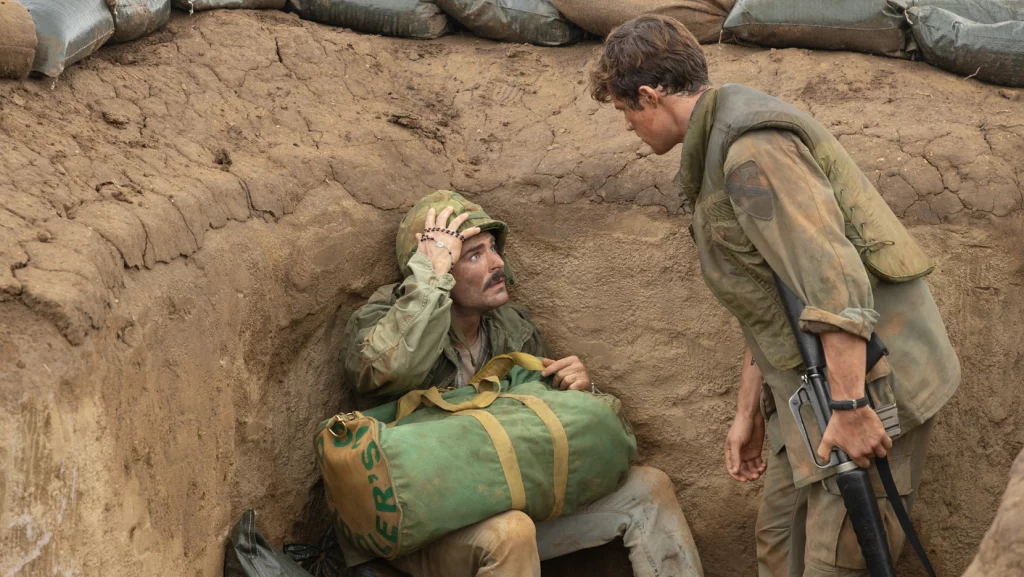
In one of the most mind-numbingly insouciant moments of the 2016 election cycle, at the CBS News debate, Hillary Clinton and Donald Trump were asked by a normie to the tenth degree to name something they respect in the other. They both gave cheap answers and centrist corners of the internet idealized the moment for a solid week or so as the symbol of the mythic American Democratic spirit and the last dying hope for bi-partisanship. In retrospect (or even at the time), it was an embarrassment. Someone at CBS had to approve the question. Anderson Cooper and Martha Raddatz nod in confirmation, donning smiles on their faces as the question levels the playing field and validates the “two evils” hypothesis prompted by reluctant Trump voters and conservative abstainers who “just couldn’t” get themselves to vote for Hillary. More importantly, the question set aside real politics—the shifting demographies of power and “the part of those without a part” to find a part, to loosely use a phrase coined by Jacques Rancière—for bullshit.
Two years later, director Peter Farrelly would win the Academy Award for Best Picture for Green Book, a movie with a complicated critical legacy to say the least. In Green Book, Farrelly seems to think he’s a leftist—and maybe if it were made in the 1960s, he’d be called that. But it wasn’t and he’s not. Like the normie at that 2016 debate, Farrelly has no idea what politics are: the fight for the “part.” For the French philosopher Rancière, politics is the attempt to be counted in a system that always miscounts or discards. It’s those without a part struggling for a part.
In Farrelly’s political perspective, politics is something lighter, almost unimportant, and he goes to great lengths to purge real political gravity from his films. In his newest movie, The Greatest Beer Run Ever, Zac Efron plays the real-life “hero” John ‘Chickie’ Donohue who experiences some sort of coming-of-age crisis and, trying to lift the diminishing spirits of American soldiers, he decides to deliver beer to his friends serving in Vietnam. His sister, Christine (Ruby Ashbourne Serkis), a Columbia student who protests the war in strictly non-violent ways, antagonizes Chickie and his war-happy friends with her anti-war inclinations.
After Chickie gets the idiotic idea to take PBR to his friends on the frontline (even though the soldiers already had access to American beer), the local bartender and WWII veteran (played effortlessly by Bill Murray) opines that war ain’t made for television. It just doesn’t have the same romance as it does in the movies. And, importantly, its graphic depictions deflate pro-war efforts.
The problem is… in The Greatest Beer Run Ever, it sort of is made for television. The filmmakers try to have their PBR-flavored cake and eat it too—and that just doesn’t fly in a movie about the lies and deception of mass murder that was Vietnam. It’s the approach of that CBS debate drawn to the scale of mass murder.
In its most apathetic scene, the definitionally stereotypical one-dimensional American war correspondent Coates (Russell Crowe) runs to the American embassy in Saigon alongside Chickie, at the peak of the Tet Offensive, in which the Viet Cong forces successfully infiltrated the embassy. Shot like a traditional war sequence with quick edits and shaky cam, Coates fires back shamelessly with the camera of journalistic truth. To whom he is firing at? Any and everyone committing violence: the North, the South, the Americans, etc. While from Farrelly’s American anti-Vietnam protestor perspective this appears noble and good, from a Vietnamese perspective it neuters the reality of the American invasion. The film seems to find it urgent to say “violence is bad,” in all its forms.
Sure, there are a few moments of genuine violence– when the singular good non-white person ‘Oklahoma’ Hieu (Kevin K. Tran) lies dead in the street, when an armless soldier stumbles out of the shadowy smoke of an explosion, etc– and it’s all shot in the same dry green-orange cinematography of Green Book. Only now, rather than playing into a period aesthetic in a mismatch of style and content, the standardish film-stock look makes these violent shots stunningly beautiful. One of the most impressive shots in the entire film traces a man thrown out of a helicopter from afar, as he lunges headfirst to the canopy of trees that will crush his spinal cord and his head. But, with the violence sanitized, we don’t see that: we only see the beauty right before.
In Farrelly’s political effort, the Vietnamese are largely “miscounted”—a terribly difficult accomplishment for a movie set during a war in which they’re slaughtered like animals and bombed like Communists in a Ted Cruz dream. And, of course, there are the Black Americans, whose plight and protest surrounding the Vietnam War are also miscounted (to the point of complete neglect). First Man somehow managed better on this one.
Chickie has a lukewarm change of heart. He doesn’t quite join the ranks of his sister’s protesting friends, but he no longer understands the war and can’t stand the lies being told by President Johnson on nightly television. That’s the problem with Effron’s Chickie (I don’t want to speak for the real Donohue). Even after seeing the war with his own two eyes, he doesn’t know what to think. He’s not quite at the point of disgust and finds it within himself to not lash out at the senseless words of the bartender upon his “patriotic” return. That’s exactly what a half-cocked approach to mass murder gets you: lukewarm, aloof politics. I’m a little bit surprised Farrelly didn’t want to ask us to name something respectable about Lyndon B. Johnson and his approach to the Vietnam War. It would have fit just fine.
The Greatest Beer Run Ever
2022
dir. Peter Farrelly
126 min.
Streams exclusively on Apple TV+ starting Friday, September 30th.

